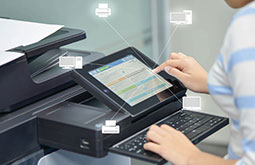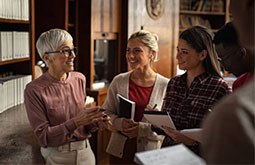How Do Legal Firms Benefit From Using OCR Scanning
Legal firms need to tackle thousands of documents every day. Technological innovations have revolutionised their operational process. A number of reasons have led them to change their pattern of tackling these documents. First of all, offline space has to be freed up to increase work efficiency. Here lies the importance of scanning legal documents. When you scan legal documents, raw papers can be stored in an electronic format or soft copy, thereby getting rid of bulky files. These can be safely stored in storage devices or cloud systems.

Digital storage of documents offers multiple benefits. However, owing to the lack of proper understanding of these scanning tools, most people refrain from incorporating them in reality. They think that after a data is scanned, it remains as a static image, and it is difficult to identify it from the bunch of other documents. However, a technique known as Optical Character recognition (OCR) enables them to make these files more dynamic and usable. Accessibility and easy storage facilities have made this tool popular in several law firms. As a cherry on the top, the process of ocr conversion is quite simple.
What is OCR and what are its benefits?
Advantages of scanning legal documents are countless and businesses from across the world are leveraging the potential of the same.
Saving documents in electronic formats is not a new idea today. In fact, it is quite a few decades old now. However, have you thought of editing these scanned files? At times, you need to update the old data and add relevant information to them. Through Optical Character Recognition; it is easy to transform the digitally scanned pictures into edited files. It can be of different formats like PDF, Word, Excel spreadsheets, CSV, XML, and more. It is even easy to search so that one can effortlessly locate it in the storage devices.
With ocr scanning services, it is possible to increase the flexibility of digital documents. OCR enables the users to find by typing the words in the document. Thus, even if you are not aware of the actual file name, you can find out the file from your databases. Apart from these, law firms often require online directories to store their information. In these cases, OCR turns out to be extremely helpful.
Another important advantage of using OCR is that it supports non-English languages like Portuguese, French, German, Urdu, Spanish, Russian, Arabic and many others. Expert companies offering bulk document scanning services are typically adept in handling all these languages.
Now the next concern is whether it is possible to apply OCR technology to digital legal documents. Of course, it can be used to scan legal forms and a lot of law firms are already making use of OCR for legal forms and the like. One can apply this software in any type of digital document. However, the quality of the scanned image may vary according to the input. If the original document is torn and worn out, the scanned document may lack accuracy. The characters may be missing in certain places. However, legal firms generally use normal quality documents and this is hardly going to be an issue.
Conclusion
If you have made it until this part, you have got plenty of ideas about the benefits of OCR scanning. Especially the advantages the optical word recognition technology has for legal firms in particular. As we know, legal firms are probably one of those business entities dealing with a large amount of data. Streamlining and categorizing all of this data not just requires substantial time and effort. But is also expensive.
OCR technology solves this issue marvelously. So, if you are a legal advisor, a corporate lawyer, or own a legal firm, start adapting OCR within your workflow. Turn any type of text into machine-readable data faster and more efficiently.
Several OCR software programs are available which can assist professionals in scanning, editing and storing legal documents safely. However, associating with a reliable, professional agency offering accurate OCR conversion services is more advisable. This can guarantee perfection, security, and cost-effectiveness.




